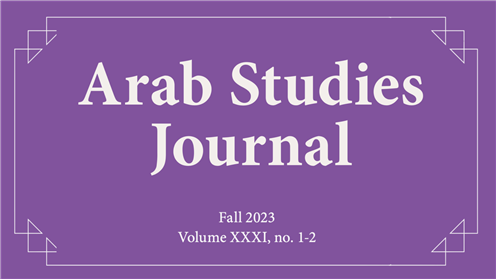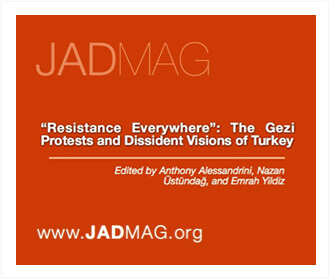Samar Kanafani and Elizabeth Saleh
Samar Kanafani is a social anthropologist residing and working in Beirut. She completed her PhD at the University of Manchester with an ethnography on decayed houses, dwelling and urban renewal in gentrifying neighbourhoods on the friend of Beirut’s city center. Her recent article on the politics of parking titled, “On Deference and Benevolence,” came out in the Arab Studies Journal (2017). Her article, "Leaving Mother-land: The Anti-Feminine in Fida'i Narratives," based on her MA research on masculinity and Palestinian freedom fighters, was published in Identities (2008). She co-edited a special issue of Contemporary Levant titled “Ethnography as Knowledge in the Arab Region” (2017). She also co-edited the book Anywhere but Now: Landscapes of Belonging in the Eastern Mediterranean (2013). She has taught anthropology, sociology and urban theory at the American University of Beirut and at Manchester University. She is presently a postdoctoral fellow with the Arab Council for Social Sciences, with affiliation to the Issam Fares Institute of Public Policy and International Affairs at AUB.
Elizabeth Saleh is a Research Associate and Program Director for “Syrian Displacement, Informality and Mobility” at the Asfari Institute for Citizenship and Civil Society, AUB. She works in the fields of political and economic anthropology, with a special focus on labor, gender, resistance and social transformation. She obtained her PhD in Social Anthropology from Goldsmiths, University of London. Her doctoral research examined the entrepreneurial strategies of members of the wine industry as they converged in the Kefraya region of the West Bekaa. In 2015, Elizabeth commenced a new ethnographic study examining the reconfiguration of Syrian labor at the interface between Beirut's formal and informal economies. Most of her fieldwork takes place at a scrapyard in a working class neighborhood in Beirut, where she explores the effects of the Syrian conflict and the policies of the Lebanese state toward migration, labor and waste management in relation to the prosperity of the scrap metal industry.
Muzna Al-Masri holds a PhD in Anthropology from Goldsmiths, University of London. Based on fieldwork in Beirut with members and fans of Nejmeh, Lebanon’s most popular sports club, her dissertation examined the relationship between political elites and their constituencies, and the formation of an emerging form of entrepreneurial elite in post war Lebanon. She is currently working as a researcher and consultant to several UN and international organizations, implementing conflict analysis and examining linkages between social cohesion and humanitarian intervention. Her recently published research reports include analysis of the conflict contexts in various Lebanese regions, and examination of the impact of social policy on Syrian-Lebanese relationships locally. Her research interests include political anthropology, elite politics and formation, everyday political practice, conflict and violence, anthropology of sports, and sensory research methods. In 2016-2017 she was ACSS Postdoctoral fellow affiliated with the American University of Beirut, working on a book project entitled Football, Contestation & Elite Formation in Beirut. Starting February 2018, she is Postdoctoral Fellow at the Orient-Institut in Beirut.
Amal Eqeiq is a native Palestinian born in the city of Al-Taybeh in the Triangle. She is an Assistant Professor of Arabic Studies and Comparative Literature at Williams College. Her research interests include: modern Arab literature and popular culture, Palestine Studies, feminism(s), performance studies, translation, indigenous studies in the Americas, and literature of the Global South. She is currently working on her manuscript, Indigenous Affinities: A Comparative Study in Mayan and Palestinian Narratives. Amal is also a creative writer and has published a number of short stories and essays in Mada Masr, Jadaliyya and several anthologies, including Being Palestinian (2017) and Min Fami: Arab Feminist Reflections on Identity, Resistance and Space (2014). Her translation of selected poems by Hussein Al-Barghouti (Arabic-English) and Miguel ́Angel Asturias (Spanish-Arabic) appeared in Jadaliyya (2011 & 2018). Amal keeps a Facebook blog called “Diaries of a Hedgehog Feminist” and is currently writing her first novel.
Zina Sawaf is lecturer in anthropology at the American University of Beirut. She obtained her PhD in Anthropology from The Graduate Institute of International and Development Studies in Geneva. Her thesis, "Encountering the state: women and intimate lives in Riyadh, Saudi Arabia", is an ethnographic study of embodied encounters between women and the processes, offices and officials of the state as well as its documentary practices. She holds an MS in Social Anthropology from the London School of Economics and an MS in Foreign Service from Georgetown University.
Lamia Moghnieh received her PhD in Social Work and Anthropology from the University of Michigan, where she studied the politics of trauma in the context of global humanitarian interventions and war in Lebanon. She holds an MA in Social Science from the university of Chicago and an MA in psychology from the American University of Beirut (AUB). Lamia is currently a postdoctoral fellow at EUME (Europe in the Middle East Middle East in Europe) in Berlin Germany. Her second project explores the history of psychiatry in Lebanon through the records of the Lebanon Hospital for Mental and Nervous Disorders or Asfourieyeh.
Helena Nassif is a social researcher of culture. She is currently the managing director of Culture Resource, an Arab regional arts and culture organization. She received her PhD in Media Studies from the University of Westminster in 2015. Her thesis titled, Home under Siege: Bab al-Hara, Televising Morality and Everyday Life in the Levant, ethnographically examines the construction and reception of televisual cultural, moral and spatial telos. She was a visiting fellow researcher at the University of Marburg and at the Orient Institute in Beirut. She is working on a book project that explores the role of digital memory and political emotions in oppositional cultures in the Arab East.










